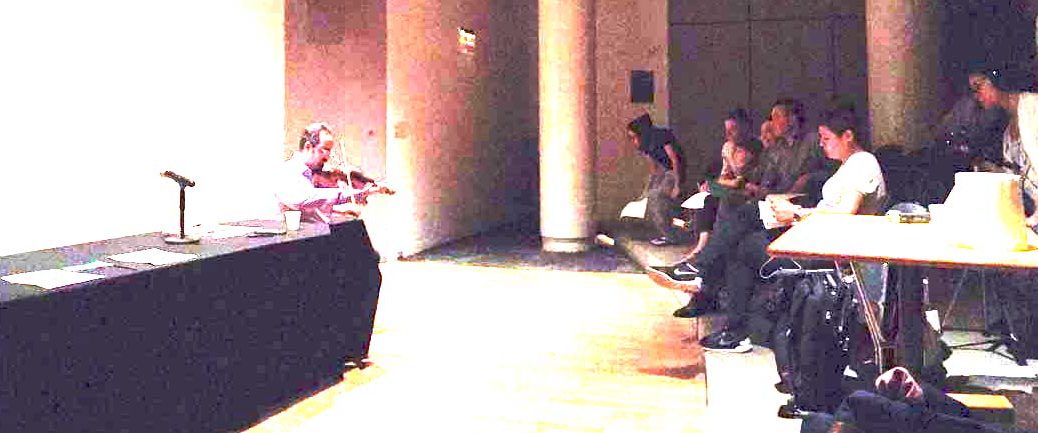Sami discussed some of the political dimensions of traditional Syrian music, as part of a panel conversation on links between the present conflict and historical migrations. Other panelists were Todd Fine, president of the Washington Street Historical Society, a nonprofit that advocates for the physical preservation of the “Little Syria” neighborhood of Downtown Manhattan and that advances memorialization projects for its literary figures; Mirna Haidar, a refugee in the States, co-founder of Zcollective an Arab and Muslim social justice collective, and an activist with the Arab American Association of NY; Mariam Jalabi, Director for the National Coalition of Syrian Revolution and Opposition Forces’ Representative Office to the United Nations since 2013; and Brian Zegeer, an artist-in-residence at the Queens Museum, where he is staging the Little Syria Archive, a collection of historical artifacts, stereoscopic 3D animations, and public encounters transcribing the history and notable luminaries of New York’s first Arabic enclave.
Sami started by first introducing the class to two early 20th century Syrian songs based on 12th and 14th century poetry from Andalusia: https://youtu.be/-
Sami then discussed the loss of cultural knowledge as a result of “internal colonization” – a process in which peoples colonized by an imperial power begin to implicitly accept their inferiority, and give up elements of their culture in favor of conforming to the “superior” culture of the imperial powers (in this case Europe and the U.S.). This process is a major factor in global music, and especially Arabic Music, resulting in major misunderstandings of the depth of the musical tradition, and in particular a loss of the value of oral tradition and oral transmission, which are mistakenly viewed as inferior by Western musical scholarship.
Finally, Sami related these themes to his own personal experience as a Palestinian-American, of disconnection from his heritage, and attempts to reclaim it by living in Cairo and Aleppo. He compared the tensions he experiences trying to hold on to traditional music forms in the U.S., where there are pressures, economic, political, and cultural, to conform to a more “global music” aesthetic – to the experiences new Syrian refugees are likely to experience in Europe.
Sami taught the class portions of the song “Ibaatli Gawaab” https://www.youtube.





